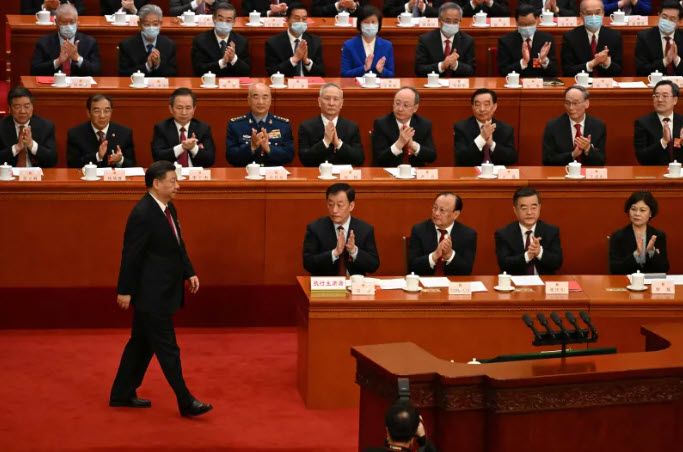
America Pausing AI Sparks Concerns About China Making Gains
BY KATHERINE FUNG AND ANNA COMMANDER
03 APRIL 2023
With concerns that China will overtake the United States in the Artificial Intelligence field, some experts are cautioning against enacting a pause, endorsed by tech leaders, on “out of control” AI systems.
In an open letter, hundreds of tech leaders, professors and researchers, including Elon Musk, advocated for an “immediate pause for at least six months” on all development of AI systems. They warn that the rapid advancement of contemporary AI systems poses a string of safety concerns, including the difficulty creators may have when it comes to understanding and predicting these new “digital minds.” But the letter received mixed reactions and some argued that pausing American innovation on AI gives China a competitive advantage in the field.
AI Race: China versus U.S.
“China is America’s most formidable competitors in the AI field,” Timothy Heath, a senior international defense researcher at Rand Corp, told Newsweek. “What makes them such a challenge for the United States is that they have enormous resource to put against AI and they have a different value set. This means China may be willing to use AI in ways that threaten U.S. interests.”
While China is a global leader in AI research, its response to OpenAI’s new GPT-4 (Generative Pre-Trained Transformer), an even more powerful version of ChatGPT driven by a large language model (LLM), was seen as disappointing by investors. Baidu’s Ernie Bot, which was unveiled earlier this month, sent the Chinese company’s shares tumbling.
“Right now, major tech companies in China are behind U.S. tech companies on building and fielding large language models, but they’re certainly working hard on it as well,” Paul Scharre, the vice president and director of studies at the Center for New American Security, told Newsweek.
Open AI’s programs have both impressed and caused alarm with their ability to engage in human-like conversations and to excel in some of the most challenging standardized tests. The latest iteration can pass most Advanced Placement exams and score in the 90th percentile of the standardized bar exam for aspiring lawyers. As of Friday, Open AI’s CEO Sam Altman had not signed the open letter.
The concerns raised by programs like GPT-4 have prompted calls like the one in the open letter. Although many in the field recognize that halting research and development in favor of safety protocols in the U.S. is important, “China is not going to slow down its AI development in either the commercial or military domain,” Gregory Allen, the director of the AI Governance Project at the Center for Strategic and International Studies, told Newsweek.
“It’s important to remember that morality and decency and harmful effects on the citizenry at large do not matter one whit to Beijing,” Grant Newsham, the author of When China Attacks: A Warning to America, said. “We need to be very careful about that and recognize that too many such halts or refusal to pursue certain research in order to keep the moral high ground could put us at a serious disadvantage.”


